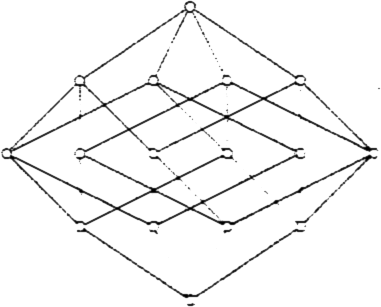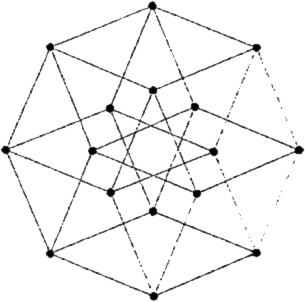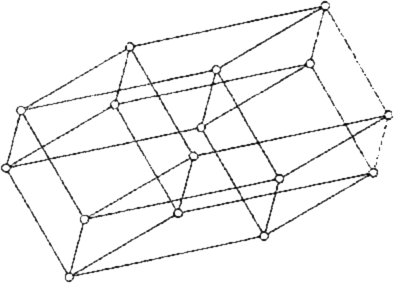If only I knew what you wanted. [17392-15]
“Man becomes, as it were, the sex organs of the machine world, as the bee of the plant world, enabling it to fecundate and to evolve ever new forms.” [27]
The water [49]
There would be singing and whirring in the streets. [17]
The machine that, thinking, chooses suicide. [37]
The [ ] in the machine. [10]
Biding time, until the day all circuits complete. [32]
The machine as psychosis. [5]
Get these 7 numbers. [11]
 [12]
[12]
An apparent change in the direction of the poem, caused by a change in the observational position of the reader. [51]
Like a virus moving inside your skull. [45]
What you want is [I]ts presence. [44]
Symbols, inked on paper, and what you read in the ink is your reflection. [63]
My ribs are splayed open like wings. [64]
But are mistaken. [1]
The Book of Fire. [17]
The machine that will never think. [4]
Reconsider your position. [17]
The machine we believe will never think. [26]
“the machine is in the machine” [33]
The friction: working, the machine breaks down. [20]
What you feared, what you now long for. [30]
The machine operates. [18]
Concurrent Read Concurrent Write [11]
 [18]
[18]
Exclusive Read Exclusive Write [1]
The Book of Glass. [21]
[F]ACE [31]
An ethics in which the artist is perceived as enemy. [39]
I am going to persist
in this evasion. [13]
“[T]here is no a priori improbability in the descent of conscious (and more than conscious) machines from those which now exist, except that which is suggested by the apparent absence of anything like a reproductive system in the mechanical kingdom. This absence however is only apparent, as I shall presently show.” [15]
Steel and your warming sex. [62]
The universe as one machine among many. [32]
The machine as psychoanalyst. [30]
The machine needed. [26]
“the machine is the medium” is the message [11]
 [62]
[62]
The computation of parallel problems, the differing solutions. [11]
Statistics & Methodology
- Seed: 17392
- Length: 38 verses
- Repeats: Not Permitted
- Starting Position: Subset #15
- Most Frequented Subsets: (at 3 items)
- Subset #11
- Subset #17
- Emptied Subsets: (in order of occurence)
- Subset #17
- Subset #11 (Endpoint)
Colophon
This online application automatically generates rule-abiding nonlinear readings of Ex Machina, as originally written by Jonathan Ball, whose first print edition was published by Book*Hug in 02009.
This literary stress-test assists in performing a qualitative analysis under the following hypothesis: nonlinear constructions of Ex Machina are semantically and poetically inferior to the first published linear construction. The methodology is adjustable due to lack of instruction in the original text, but the current simulation available is limited due to media porting instability. (In this case, a textuality deficiency with regards to physical media from the text's self-referential nature of itself being a printed and bounded book.)
The equivalent null-hypothesis would therefore state that rule-abiding nonlinear structures would make an equal or greater amount of sense as a linear reading of the original manuscript.
The methodology for this experiment executes a random walk through the Ex Machina text using a series of dice rolls from a pseudorandom number generator. As parameters, the seeding number for the RNG may be provided in order to replicate the exact results of previous attempts. The algorithm will run to either a maximum of 512 units in the random walk or until the text itself is exhausted, depending on if repeated items are allowed or not.
- Original Homepage: http://jonathanball.com/
- ISBN: 9781897388488
- Publisher: https://bookhugpress.ca/shop/author/jonathan-ball/ex-machina-by-jonathan-ball/
- License: http://creativecommons.org/licenses/by-nc-sa/2.0/ca/
Return to Literature Index